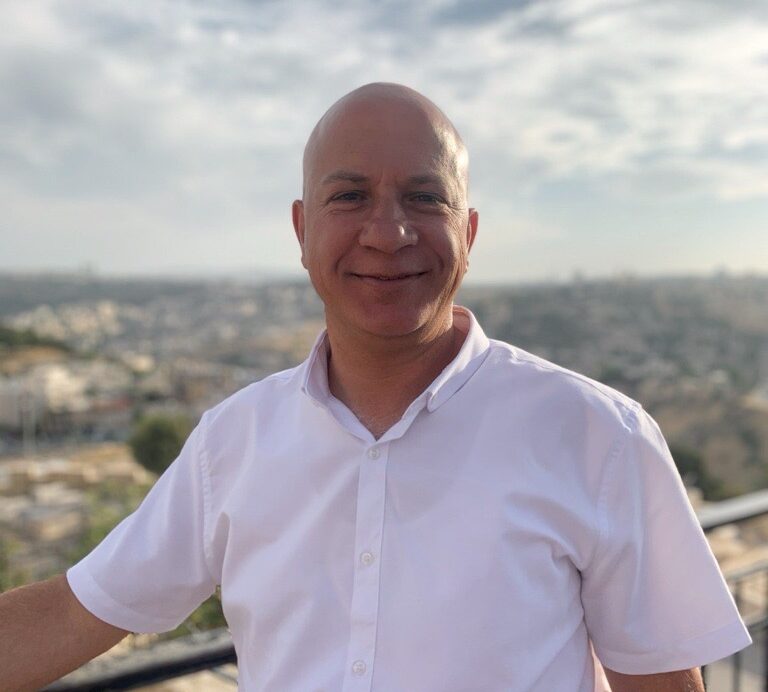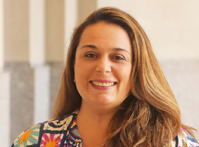-
Environmental Cooperation in the Middle East: A Conversation with Dr. Tareq Abu Hamed
July 12, 2024 By Wilson Center Staff In today’s episode of New Security Broadcast, Wilson Center Global Fellow and environmental journalist Anneliese Palmer speaks with longtime leader in regional environmental diplomacy and Executive Director of the Arava Institute for Environmental Studies, Dr. Tareq Abu Hamed. In their conversation, Dr. Hamed unpacks the opportunities and challenges of climate and environmental diplomacy, environmental peacebuilding efforts in Gaza and the Middle East, as well as his role in Jumpstarting Hope, a project that works to provide essential services such as safe drinking water and sustainable electricity to communities in Gaza.
In today’s episode of New Security Broadcast, Wilson Center Global Fellow and environmental journalist Anneliese Palmer speaks with longtime leader in regional environmental diplomacy and Executive Director of the Arava Institute for Environmental Studies, Dr. Tareq Abu Hamed. In their conversation, Dr. Hamed unpacks the opportunities and challenges of climate and environmental diplomacy, environmental peacebuilding efforts in Gaza and the Middle East, as well as his role in Jumpstarting Hope, a project that works to provide essential services such as safe drinking water and sustainable electricity to communities in Gaza. In today’s episode of New Security Broadcast, Wilson Center Global Fellow and environmental journalist Anneliese Palmer speaks with longtime leader in regional environmental diplomacy and Executive Director of the Arava Institute for Environmental Studies, Dr. Tareq Abu Hamed. In their conversation, Dr. Hamed unpacks the opportunities and challenges of climate and environmental diplomacy, environmental peacebuilding efforts in Gaza and the Middle East, as well as his role in Jumpstarting Hope, a project that works to provide essential services such as safe drinking water and sustainable electricity to communities in Gaza.
On using environmental peacebuilding as a tool
“When you do environmental work in a region that has conflict, in order to have sustainable environmental solutions for the environmental challenges that we have, you have to establish trust, you have to build that trust or at least have it based on an understanding. Otherwise, you cannot get long-lasting relationships, or long-lasting solutions for the conflict that we have.”
“Climate diplomacy, or environmental diplomacy, is not only a great tool to deal with environmental challenges or the threats of climate change, but also to build understanding.”
On the shift in perspectives regarding environmental challenges
“So, when I started my career, people really were against cooperating, but with time, with the increasing environmental challenges that we face and with the increasing impact of climate change on the daily lives of people, people started to be more open to cooperation because they understod that ‘I cannot deal with this alone, I have to work with my neighbors.’ Once they have this realization, that’s why you see a shift.”
On how climate change affects the security landscape
“Not only political but also environmental stability and sustainability in the Middle East, means stability in the rest of the world. This is also the case in South Sudan and in South America. Stability of those parts of the world means stability in this part of the world.”
“Climate change is not only an environmental issue, but also a first-degree national security issue. People are looking for ways to live under these conditions, and they know that there are organizations on the “other side.” The “other side” means either Palestinian or Israeli, who are willing to help both sides by providing the right technology to help people build capacity, increase their knowledge, or use technologies that help people cope with climate change.”
On how the Arava Institute bridges regional gaps in pursuit of stability
“We’re not only providing them with the technologies that we develop at the Arava Institute, but we’re also building a coalition that will have more options and more solutions for people on the ground. And again, it probably seems very, very simple now; but as I said, it took 27 years to build this trust, to build these partnerships as an Israeli organization to be in touch with Gazans and Palestinian organizations in Gaza, this is not simple, but we trust each other.”
“1/3 of our students are Arabic speakers, which means Israeli Arabs, Palestinians from the West Bank and Gaza, Jordanians, Moroccan Sudanese, 1/3 Jewish Israelis, and 1/3 international students in a university liberal program. We are an organization that has a mission, which is to advance cross-border environmental cooperation. They have the dialogue, they discuss the conflict, they learn environmental studies, and this is how we build a community of environmental leaders who are willing to talk, to cooperate, and to solve the region’s environmental problems.”
On the shared impacts transboundary conflicts
“We live here in the Middle East, which is considered a hotspot when it comes to climate change. And not only that, here in the Middle East, we share almost all the natural resources, and we are impacted by climate change. We share the aquifer, and we share the surface seawater. So, it doesn’t matter where the pollution starts—it impacts everyone.”
“The lack of electricity in Gaza—both before October 7 and also today—is preventing Gazans from treating the wastewater. So, what happens to the untreated wastewater? Often it is dumped into the agricultural fields, and it infiltrates into the shared aquifer between Israel and Gaza.”
On Jumpstarting Hope and building partnerships to aid war-torn Gaza
“The war right now in Gaza is not only impacting Gaza, but the entire region. Following the end of the war, a major international initiative to rebuild infrastructure and housing in Gaza will be required.”
“The Jumpstart project provides off-grid decentralized technologies. People cannot wait for Gaza to be rebuilt because they need water and other essential services. We plan to have an essential supply of water, sanitation, hygiene, and energy services for the population in the Gulf and Gaza. People cannot wait for gas infrastructure to be rebuilt. And these technologies will help people meet their basic needs until sustainable planning in Gaza takes place.”
“What makes the Arava Institute special here is our strong connection, with our Palestinian partners on the ground in the Gaza Strip. Before October 7, we managed to bring the Java SDK to Israel, which is a group of engineers and technicians, and we were able to train them.”
“We are building a consortium of organizations with different expertise. Some of these organizations know how to disseminate water or know how to generate drinking water from the air, and this technology actually fits Gaza very well because Gaza is on the shore and the humidity is very high.”
On what we need to adapt to climate change
“I think we were facing significant challenges, ones that we cannot solve if we continue with business as usual. We must change the way we live, the way we plan our cities, the way we produce our food, and the way that we generate our water. We have to have these changes in order to slow down the impacts of climate change.”
“We have to design policies for urban planning and for modern and sustainable agriculture. Otherwise, we will be unable to reverse the impacts of climate change.”
Image credit: Headshot of Dr. Hamed, courtesy of Dr. Hamed.
 A Publication of the Stimson Center.
A Publication of the Stimson Center.






